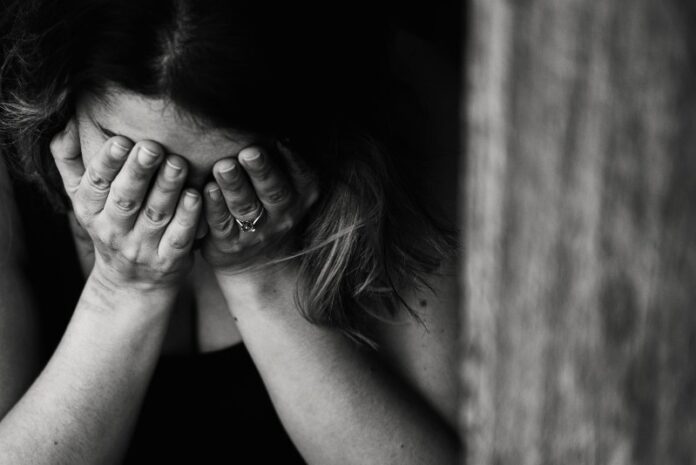The stress of dealing with the many changes of COVID-19 over such a long period of time has caused a significant upturn in reports of mental illness. According to research conducted by the Kaiser Family Foundation (KFF), 40% of adults in the United States have reported symptoms of anxiety and depression. This number was at 11% previous to the pandemic. The hardest hit are women with children under 18 and African Americans.
The KFF study states that “many adults are reporting specific negative impacts on their mental health and well-being, such as difficulty sleeping (36%) or eating (32%), increases in alcohol consumption or substance use (12%), and worsening chronic conditions (12%)…As the pandemic wears on, ongoing and necessary public health measures expose many people to experiencing situations linked to poor mental health outcomes, such as isolation and job loss.”
Emotions run from grief and loneliness to fear and anger. As in all crisis situations, stress and worry bring out the best in some and the worst in others. The United States Department of Health and Human Services, the Anxiety and Depression Association of America, the Center for Disease Control and Prevention and many other organizations are offering resources for those needing help dealing with these emotions.
Some people are not even aware of how much COVID-stress is affecting them. Whether the pandemic is having a small or large effect on personal mental health, here are 12 things everyone can do to lessen the mental fatigue caused by the ongoing fight against the coronavirus.
1Understand Your Emotions.
Everyone responds differently to stress. Some get aggressive, others withdraw. With the pandemic lasting so long, it is possible to slide into unhealthy cycles caused by both constantly releasing emotions and constantly keeping them in check. Get in tune with your body and how you feel, both mentally and physically. Let yourself feel your grief, anger, pain, fear, worry, or whatever else you are feeling. See how it is manifesting in your body. Long-held emotions can manifest as physical pain and chronic illness.
2Understand Your Triggers.
We all have feelings, but when they run a little higher than normal for what is happening then something else is going on. Maybe you drop a spoon off a table and find yourself screaming colorful swear words or get enraged at your child for spilled milk. This is a trigger. Triggers are reactions caused by past events that hurt you in some way. During stressful times, the slightest thing can cause us to overreact and make a situation worse than it should be. When aware of triggers, one can stop and breathe and think of a healthier reaction.
3Give Yourself a Break from the Media, including Social Media.
Everyone needs a break from the news these days. Be it on the television, or radio, or on the internet. Limit news consumption to a certain amount a day. Then find something else to do that is fun and enjoyable.
4Accept That You Have No Control Over Others Actions.
Right now, there is a lot of judgment going on, especially on social media. We have no control over how others think, feel, or act. Now is the time to use discernment. Bring out old-fashioned common sense and critical thinking skills. Be realistic about your actions. Do what is best for you, your family, and your community.
5Focus on Being Productive.
Keep yourself busy. With work. With School. In the community. On a hobby. Working on your home. Learning something new. We can create a lot of ‘what ifs’ that can lead our minds down a dark path.
6Engage in Stress Releasing Activities.
Move daily. Walk. Run. Bike, Swim. Do yoga. All of these are healthy ways to remove stress from your body, which is good for both your body and your mind.
7Create a Healthy Routine.
Lack of routine has been found to be one of the biggest contributors to poor mental health. A sense of structure gives us a base on which to grow. Retired adults who have a daily productive routine live longer and healthier lives than those who do not. Just as those who have kept a routine during COVID have coped better than those who have not.
8Find a Way to Contribute to the Community.
Giving to others is a great way to help ourselves. There are many non-profits that need help now more than ever as their resources are being stretched tight with greater needs. While they can certainly use treasure, giving of your time is just as important. For mental health, even more so.
9Have Faith.
Sometimes you have to let go and give it all to God. Sometimes you have to let go and have faith in others, like doctors and scientists who are working around the clock to find cures and treatments so we can get back to some semblance of normal. Sometimes you have to have faith in yourself. You can keep going in spite of all the craziness.
10Be Kind.
The longer we live with stress, the more tempers flare. The more we try to lead with kindness towards ourselves and others, the more we are doing to decrease general stress.
11Follow CDC Guidelines
Do what you can to safeguard yourself, your family, your neighbors, and your community. Mask up. Take the vaccine if you can. Practice social distancing. But remember, the disease is always changing, so the rules may change with the disease. Flexibility in thinking is important.
12Seek Help.
If you just can’t deal with what is happening, ask for help. It is easy for some, and harder for others. Currently, there are many national hotlines with people trained to help others find ways to cope during this troubling time. The helpline for the National Alliance on Mental Illness is 1-800-950-NAMI.
To learn more about mental health, take this quiz. To learn more about how the pandemic is changing how we look at and treat mental health, click here.
COVID-19 has pushed mental health to the forefront. The stigma of having a mental illness or not having good coping mechanisms is changing. Now is the time to make sure that each of us is handling the stress of life with COVID-19 the best we can.
Subscribe to our FREE Newsletter



























